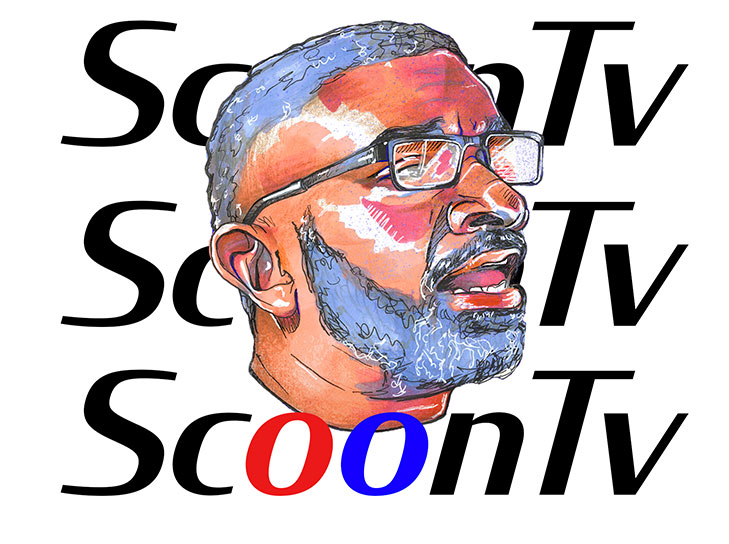By John C. Baldwin
Working in tech has a certain appeal to it. We’ve seen the hashtags and the announcements throughout various social media platforms – “I accepted an offer to work at *insert unicorn name.*” But the startup world is like none other.
It’s fast paced, demanding, and has a high turnover. What takes 2 years to accomplish at major corporations, you’ll master in 3 months. If not, you’re fired!
I was the last person to think I’d become a founder but living in the SF Bay Area for almost 4 years, I caught the bug. The only cure is to walk through the fire and endure the burn.
I’m John C. Baldwin, CEO/Founder of FENDR. Our plan is to automate the workflow of the car crash industry on behalf of the consumer to get their settlement quicker.
This summer, I pitched my startup to an associate at a VC firm in Palo Alto. The goal was simply to receive feedback and get her initial thoughts on the business model. She made suggestions for my pitch deck and slides that need to be incorporated, but then she gave her most invaluable insight. She said that since this was my first business, investors will find that alarming.
I must be honest – I was taken aback but not too surprised. After all, Silicon Valley is the place where college friends and yuppies build companies from their garage and become household names throughout the world. That’s what we’re told at least.
I took the advice and implemented a quick internet search on “de-risking business model + startups” and found Day 1 – a pre-accelerator for first time founders. The course was $1500, and I purchased it without thinking twice. After all, how could I expect a VC to invest $1 – $2 million in a seed round, if I didn’t invest in myself?
For those contemplating being a founder, it’s important you have an honest conversation with yourself. Here are a few things I’ve learned along the way:
The odds are not in your favor.
Startups have a 90% failure rate. While your chances of failure decrease with the help of having investors, it is not by much. 75% of VC backed startups fail as well. Who wins is based on a variety of factors: timing, great marketing, team, and an exceptional product, in no particular order.
Prepare for dozens, if not hundreds of rejections.
VCs are pitched 60 startup ideas a day. There are certain components they need to see in your pitch. Investors are focused on unicorns with a billion-dollar valuation.
Product/market fit.
Simply put – will customers buy your product? If not, cut your losses. My CTO/Co-founder always asked in the beginning, “Why would they use our product?” It was challenging but we found the solution by listening to our customers.
Investors are attracted to traction.
How many customers have you landed? Have they paid? If there are no paying customers there is no proof of concept. The biggest hurdle many founders experience is finding customers without capital. Bootstrapping is the right of passage for startups. I found my first few customers through word of mouth and contacts on my iPhone. Seriously. They all paid as well.
It demonstrates the team’s tenacity to get things done at all costs. More so, it proves the market wants what you’re selling. Since they’re paying for the services, it’s worth an investment. The bootstrapping phase proves to be a challenge for individuals that may not have gone to an Ivy League School or worked at Google.
Build Relationships.
In college, students are pushed to network because it opens doors, but “networking” means different things to different people.
I’ve worked in a few startups as an account executive and it’s a network of people wanting to disrupt various systems. This ecosystem is a loosely coupled network of engineers and some of the best and brightest minds in the world.
If you are not in STEM, learn to sell a product because ultimately, you will become a salesperson if you want success in this field.
Also, allow networking to happen organically. I was in a virtual meeting recently where a founder needed consumer input. Their team are the only people to see the interface and often, a fresh set of eyes offers a different perspective. They gave $25 to those who participated.
I told him not to worry about the cash, glad to offer my help. I learned about team building and the user experience. That’s worth more than $25.
The name, “FENDR,” was derived from my cohort. The original name sounded too gimmicky. When a fellow founder suggested fender — yes, like the guitar company, I liked it but dropped the “E” because our goal is to get crash victims back driving again en route to a better settlement. The “E” was in the way.
Listen to your customers!
A challenge I had to overcome, quickly, is the idea that I knew what my customers needed. That’s a quick way to fail. Instead, the customer needed to tell me their frustrations and I offered them a solution. The customer interviews are the most important aspect of a startup. It validates your idea from speaking to consumers who need your product or service. More on the customer interviews, soon.
Over the next few weeks, I will share my wins, challenges, and losses and hopefully spark a fire in the next founder. Thank you for being a part of the ride.
Subscribe to get early access to podcasts, events, and more!






